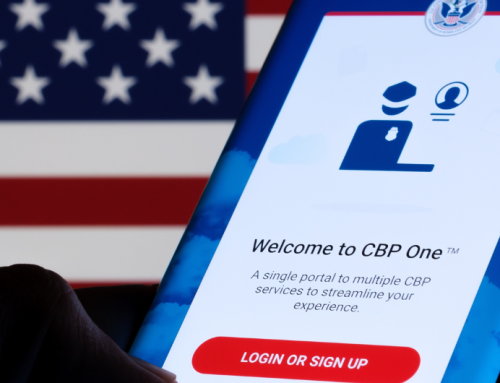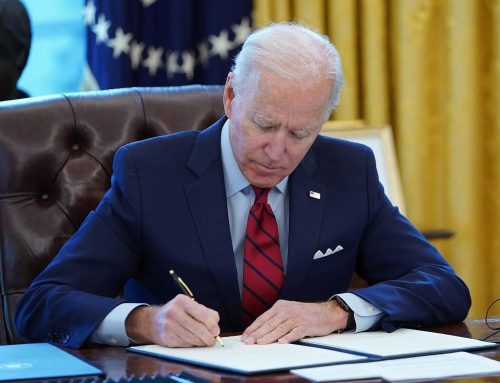Republican Senators Counter DREAM Act with ACHIEVE Act
On November 27, 2012, Senator Kay Bailey Hutchison (R-TX) introduced the ACHIEVE Act, co-sponsored by Senators Jon Kyl (R-AZ) and John McCain (R-AZ).
The ACHIEVE Act (S. 3639), short for Assisting Children and Helping them Improve their Educational Value for Employment Act, is an alternative to the Democrat-backed DREAM Act (Development, Relief, and Education for Alien Minors, S. 952, H.R. 1842).
Both ACHIEVE Act and DREAM Act address the problem of providing immigration status for undocumented children and young adults who were brought to the United States by their parents. Unlike the DREAM Act, ACHIEVE Act does not provide a green card to the beneficiaries but creates instead a “permanent nonimmigrant status”. In addition, ACHIEVE Act restricts eligibility to a more narrow class of individuals than DREAM Act.
Kyl and Hutchison stressed their bill would not allow anyone to move ahead of others applying for citizenship. Rather, an individual could remain in the U.S. while applying through existing programs for citizenship — a significant difference from Senate Democrats’ proposals. “It doesn’t give them a special preference before those who have waited in line for years to get into the citizenship track,” Hutchison said. For that reason, advocacy groups that push for immigration reform criticized the proposal as a half measure that would provide few new opportunities for normalization for young adults.
The ACHIEVE Act would allow individuals who meet the established criteria to obtain a series of conditional nonimmigrant visas designated as W-1, W-2, W-3.
W-1 Status
Those with a W-1 nonimmigrant visa would attend school to earn a bachelor’s, associate’s, vocational/technical, or advanced degree, or serve in the U.S. military. A W-1 visa holder would have six (6) years to get a degree or enlist to serve four (4) years in the military.
To be eligible for W-1 status:
- Applicant must have lived in the United States for five (5) years prior to enactment;
- Applicant must have entered the country before the age of 14;
- Applicant must have good moral character;
- Applicant must not have committed a felony, must not have committed more than one (1) misdemeanor, must not have committed a crime of moral turpitude, and must not have a final order of removal pending;
- Applicant must have knowledge of the English language, of American history, and of principles of U.S. government;
- Applicant must be 28 or younger at the time of application (unless applicant is under 32 and possesses a bachelor’s degree from a U.S. college at the time of application);
- Applicants pay an application fee;
- Applicants complete a medical exam and submit biometric and biographic data as part of a background check.
To maintain W-1 visa status, visa holders:
- Must check in every six (6) months with the DHS, and be compliant with program requirements;
- Must not access public welfare benefits;
- Must not access federal student loans, or other federal benefits, but may work while in school
- Do not have access to a green card while here on the W-1 visa.
W-2 Status
After completing all W-1 education/military service requirements, a recipient can obtain a W-2 visa, which is a four-year nonimmigrant work visa (it also allows to study toward a master’s degree or higher).
Criteria for obtaining W-2 status:
- Recipient must have earned a bachelor’s, associate’s, or vocational/technical degree in the U.S. while here on the W-1 visa or have served four (4) years in the U.S. Armed Forces;
- Pay an application fee;
- Continue to meet W-1 criteria (no criminal record, check in with DHS, etc.).
W-3 Status
After completing four (4) years of work while holding a W-2 visa, a recipient can then apply for a (permanent) nonimmigrant (no special pathway to citizenship) visa.
Conditions for obtaining W-3 status:
- Must have complied with all requirements/eligibility standards for W-1 and W-2 status;
- No eligibility for public welfare benefits;
- W-3 status renewable every four (4) years;
- No new green cards are added in the Act, but a W-3 visa recipient could apply under current law to obtain one and get in line.
To become law, the proposed legislation has to pass both parts of the Congress and be signed by the President. However, the bill is certain to struggle in the majority-Democrat Senate.
Full text of the bill is available online. You can also track the bill online through the Library of Congress websiteor GovTrack.
Attorneys at I.S. Law Firm have helped many immigrants to legalize their status in the United States, change or extend their status, or obtain permanent residency. Please contact us for a consultation today: +1-703-527-1779 or via e-mail: [email protected].






